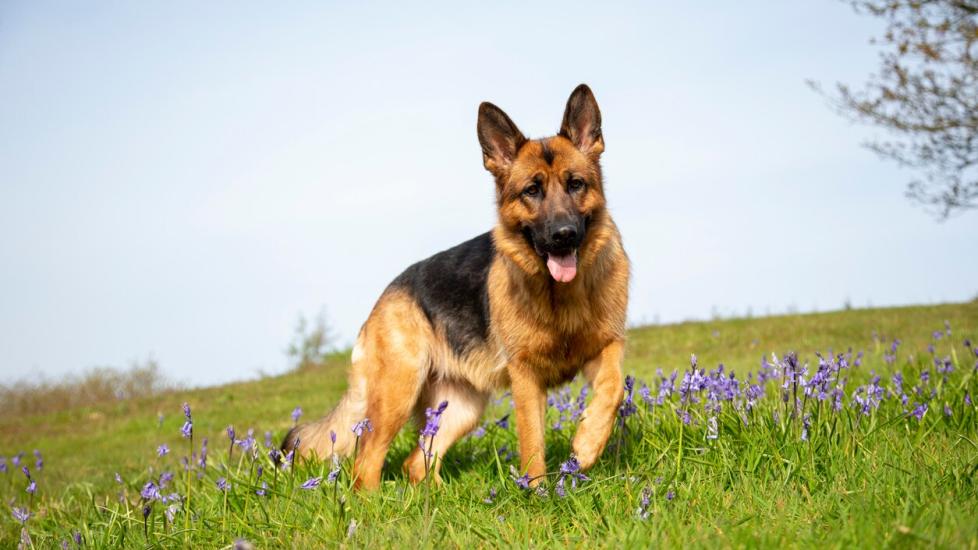Introduction: The German Shepherd is one of the most popular and versatile dog breeds known for its intelligence, strength, and loyalty. Originating from Germany, this breed has become renowned for its role as a police, guard, search-and-rescue, and guide dog due to its exceptional work ethic and obedience.
Lifespan: 9 – 13 years
Coat Length: Medium/Long
Alias(es): Alsatian (in UK & Ireland)
Height: Male: 24–26 inches / Female: 22–24 inches at shoulder
Place of Origin: Germany
Body Size: Large
Shedding Level: Moderate Shedder
Trainability: Very Trainable
Temperament: Intelligent, Confident, Fearless, Loyal, Energetic
Exercise Needs: High; requires regular physical and mental stimulation
Grooming Requirements: Regular brushing to prevent matting, especially during seasonal shedding periods
Health Issues: Hip dysplasia, elbow dysplasia, von Willebrand disease, gastric torsion, bloat, degenerative myelopathy
Socialization: Extremely important to ensure proper behavior around people and other animals
Kid-Friendly: Yes, with early socialization and training
Pet-Friendly: Variable; may be protective or dominant with other pets
Stranger- Friendly: May be wary of strangers but can learn to tolerate them
Energy Level: High energy; needs plenty of opportunities for play and exercise
Barking Tendencies: Barks when necessary; not excessive unless untrained
Space Requirement: Prefers a home with a fenced yard, but adaptable if well-exercised and mentally stimulated
Suitable Living Environments: Active households that can provide adequate exercise and attention
Mental Stimulation Needed: Highly intelligent and requiring complex tasks and challenges to stay engaged
Remember that every individual dog within a breed can have different traits, so it’s crucial to get to know your specific German Shepherd rather than relying solely on breed stereotypes. Proper socialization, training, nutrition, and veterinary care are essential for ensuring a long, healthy life with your furry companion.
